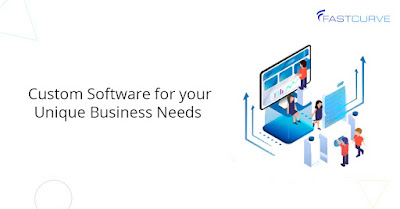Future of Digital Payments: Opportunities for IT Companies
Future digital payments present IT companies with numerous possibilities as the face of finance continues to evolve. Fintech evolutions have gained fast momentum, and businesses of all types have since begun adopting progressive technologies for efficient digital payment systems and faster security for financial inclusion. Therefore, there is a demand for immediate and swift payment solutions.
IT companies can integrate emerging technologies such as blockchain, artificial intelligence, and mobile applications development to configure less-intervened consumer experiences.
Lastly, because cybersecurity is the new major theme in all business operations, such measures would provide IT companies with avenues to develop contemporary solutions concerning safety measures.
Employing the lead in trends or digital transformations will enable IT services to stand as key contenders in the arena of new and evolving digital payments gateway solutions. Thereby creating a financially efficient and inclusive future.
What is digital payment?
Digital payments refer to money transferred electronically for purchase or services rendered without physical cash or checks. Different payment processing systems are included in it, such as credit and debit cards, mobile wallets, e-banking, and cryptocurrencies.
Digital payments have become an integral part of people's lives due to their convenience, speed, and security, enabling transactions to be made at any time and from anywhere using smartphones, tablets, and computers.
With the rapid growth of enterprise data security and mobile commerce, the need to embrace digital payment solutions has become formidable. Consumers relish the idea of making purchases with just a few taps, which benefits businesses by reducing transaction time and increasing cash flow. Digital payments usually have security features such as encryption and tokenization to protect sensitive financial information.
The definitive trend in the evolution of digital payment technology is the use of innovations such as contactless payments, biometric payment authentication, and blockchain technology.
Benefits of digital payments
1. Convenience: Financial transactions, wherever and however, can sometimes be completed without cash or a visit to the bank. All you need is a smartphone or computer to make payments.
2. Speed: Transactions are now processed within seconds, which significantly reduces the time typically required for traditional payments, such as checks. Speed is essential for businesses, particularly because it enables cash inflows.
3. Security: Digital payments adopt special measures that protect sensitive financial information from fraud or theft using encryption, tokenization, etc., and biometric authentication.
4. Cost savings: Cash management and transactions typically incur significant costs that can be reduced by integrating digital payments.
5. Financial inclusion: In this manner, digital payments create open banking payment systems that cater to unbanked populations, thereby providing opportunities for competition among individuals in remote areas or those with limited development.
6. Payment data analytics: Digital payment portals provide valuable insights into consumer behavior, which help businesses implement targeted marketing campaigns and personalized services.
7. Improved cash flow: Faster transaction processing leads to improved cash flow, which in turn enhances overall corporate financial management.
8. Global reach: Boosting international commerce expands market opportunities for businesses.
9. Eco-friendly: It goes a long way toward reducing the need for paper currency and checks, thus aiding sustainable practice in financial transactions.
Future of digital payments
Due to new technology and shifts in the consumer market, the future of digital payments holds an excellent opportunity to grow and transform. As mobile wallets, contactless payments, and cryptocurrencies gain traction, payments will become seamless and embedded.
Creating the foundation for artificial intelligence and machine learning will enable the detection of fraud and the regulation of risk in safer transactions, while directly influencing what is relevant to the user experience.
It's expected to change the face of cross-border payments, making them cheaper and faster. IOT will be smart enough to allow automated payments through ambient purchase possibilities in connected devices.
Regulatory regimes will inevitably evolve to cater to these developments. It also creates a safe and level playing field for these kinds of innovations in B2B digital payments. As the directions for financial inclusion become global, digital payment systems will even reach unserved communities, empowering them with access to services.
Digital payment systems will revolutionize financial transactions as technological advancements constantly meet consumer expectations. Emerging advances, such as blockchain, AI, and IoT, will thus enhance IT maintenance and efficiency and expand access to all forms of digital payments.
This makes them apt for further penetration with sustainability. Outsourcing IT services will consider other emerging factors, such as banks and consumers opting for these solutions. Information technology companies will play a crucial role in this transformative process by developing the necessary technologies. This enables seamless transactions and builds confidence in the changes.
Fastcurve Services is a global IT consultancy specializing in custom software, cloud solutions, AI, data analytics, and ERP. It emphasizes fast, high-quality, and cost-effective solutions serving diverse industries worldwide. Connect with us for the best IT services.



Comments
Post a Comment